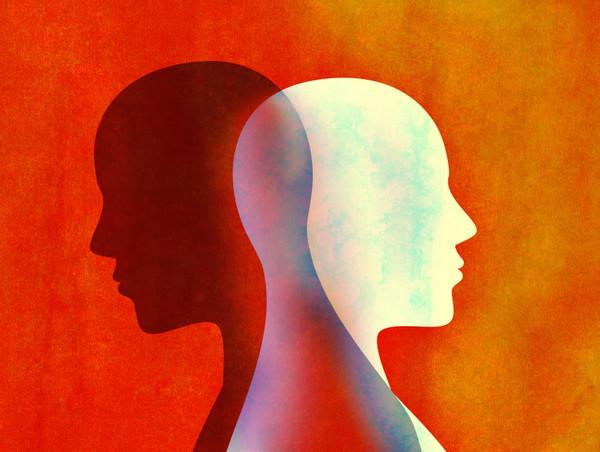The Battle Over the Human Mind That Split Two Great Thinkers
Curated from: mindmatters.ai
Ideas, facts & insights covering these topics:
8 ideas
·3.27K reads
21
Explore the World's Best Ideas
Join today and uncover 100+ curated journeys from 50+ topics. Unlock access to our mobile app with extensive features.
Is The Mind Simply An Organ That Evolved Naturally?
Scientists haven’t solved this still called “Hard Problem of Consciousness,” and a materialist solution is nowhere in sight. Not for lack of trying. Some, improving on Darwin, insist that chimpanzees really do think like people if you study them enough (no, they don’t). Others claim that artificial intelligence will soon surpass human intelligence. If so, that would be a credit to human intelligence because we created it.
34
735 reads
Is Human Intelligence A Material Thing?
AI capable of thinking like a human would be a philosophical problem, to be sure, because it would mean both that intelligence can create itself and that it can be instantiated in a non-biological form.
However, such a development would not demonstrate that human intelligence is a material thing or that it arose from a material thing. If anything, it would more readily suggest the opposite.
29
565 reads
Undermining The Materialistic Account Of The Mind
Neil Thomas, Reader Emeritus in the University of Durham, England and a longtime member of the British Rationalist Association notes the key role neuroscience has played in undermining a purely materialist account of the mind — an unexpected role for neuroscience, perhaps, but that’s what happened:
”Neuroscientist Donald Hoffman, who once worked with DNA co-discoverer Francis Crick in attempting to crack the problem of human consciousness, recently conceded that the nature and origins of consciousness remain “completely unsolved” and may best be termed an eternal mystery.”
29
450 reads
Consciousness Just Cannot “Arise Naturally”
The brusque and decidedly no-nonsense Crick was in the event fated to meet his Waterloo when it came to the subject of consciousness, explains Hoffman. Crick had at first attempted to explain it somewhat airily as nothing but an “emergent” property which “naturally” arose when matter reaches a certain level of complexity. However, he was at length obliged to withdraw that vacuous contention, conceding that there is nothing about conscious experience that is relatable to the physical stuff or material of the brain. Consciousness simply lies beyond our empirical perception and cognitive reach.
29
374 reads
Numbers Just Cannot Emerge From Biscuits
Hoffman develops the point further: “At the most microcosmic level the brain consists of subatomic particles which have qualities like mass, spin and charge. There is nothing about these qualities that relates to the qualities associated with consciousness such as thought, taste, pain or anxiety.” To suggest otherwise, continues Hoffman, would be like asserting that numbers might emerge from biscuits or ethics from rhubarb.
28
325 reads
Darwinitis
Both Hoffman and Crick were finally forced to conclude that all purely physicalist theories of consciousness had failed to provide illumination and that the state of consciousness could not be explained in neurological terms, a conclusion powerfully endorsed for more than three decades by distinguished British neuroscientist Raymond Tallis in his long opposition to what he terms “Darwinitis.”
Any physicalist theory of consciousness must reckon with the fact that consciousness deals with information, which is not a material thing and follows different principles from matter and energy.
28
303 reads
Panpsychism
One outcome in science today is the rise of panpsychism, the view that all life forms participate in consciousness to at least some minimal. Panpsychism attracts many because it allows consciousness to be real rather than illusory (as per physicalism) but it remains in the same general thought world as, say, Hoffman — though not that of Richard Dawkins. Wallace himself, as Hoffman notes, came to embrace a sort of natural theology. He contributed to a number of streams of early twentieth-century thought, as Michael Flannery’s book Nature’s Prophet details.
28
272 reads
Natural Selection Vs Natural Thrology
The bottom line seems to be that we are not only ignorant but, alas, prostrate in our ignorance of the brain’s arcana. Theoretically, of course, there may yet emerge an as yet undiscovered materialist explanation for the brain and human consciousness. But to date we must conclude that today’s science cannot with integrity support such a claim on the evidence presently available.
In any event, neuroscience today could marshall as many arguments in support of Wallace’s view of the human mind than of Darwin’s.
28
250 reads
IDEAS CURATED BY
CURATOR'S NOTE
Charles Darwin (1809–1882) and Alfred Russel Wallace (1823–1913) share the credit, technically, for the theory of evolution by natural selection but Darwin became the icon. One reason they parted ways was that Wallace did not agree with Darwin that the human mind was simply an organ that evolved naturally, like any other. There had to be something more to it.
“
Xarikleia 's ideas are part of this journey:
Learn more about psychology with this collection
The differences between Web 2.0 and Web 3.0
The future of the internet
Understanding the potential of Web 3.0
Related collections
Similar ideas
6 ideas
Consciousness: how can I experience things that aren't 'real'?
theconversation.com
9 ideas
How Does the Human Mind Work?
exploringyourmind.com
11 ideas
Read & Learn
20x Faster
without
deepstash
with
deepstash
with
deepstash
Personalized microlearning
—
100+ Learning Journeys
—
Access to 200,000+ ideas
—
Access to the mobile app
—
Unlimited idea saving
—
—
Unlimited history
—
—
Unlimited listening to ideas
—
—
Downloading & offline access
—
—
Supercharge your mind with one idea per day
Enter your email and spend 1 minute every day to learn something new.
I agree to receive email updates
